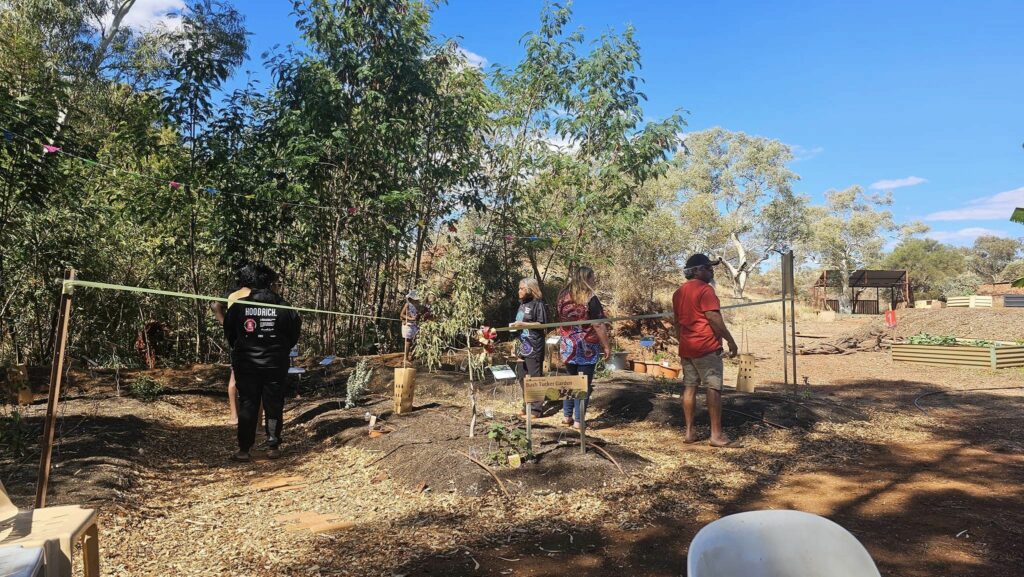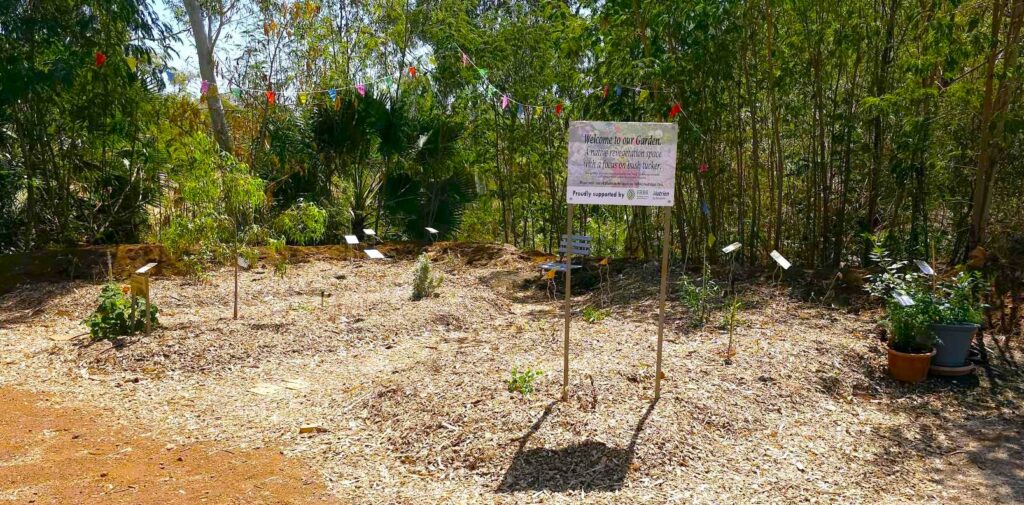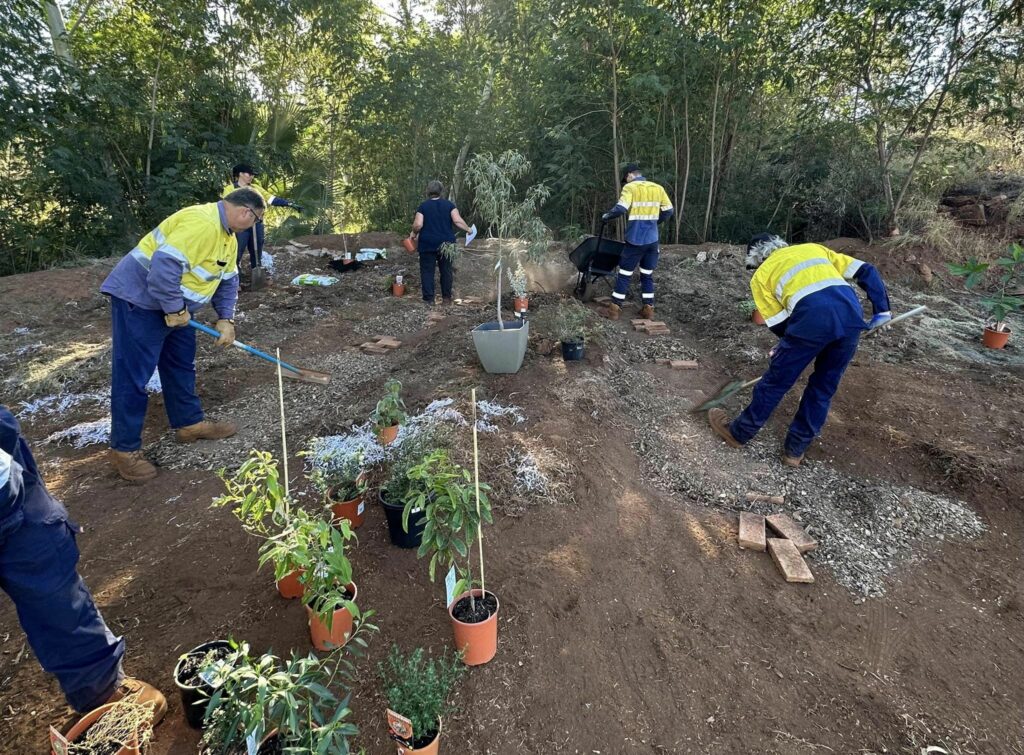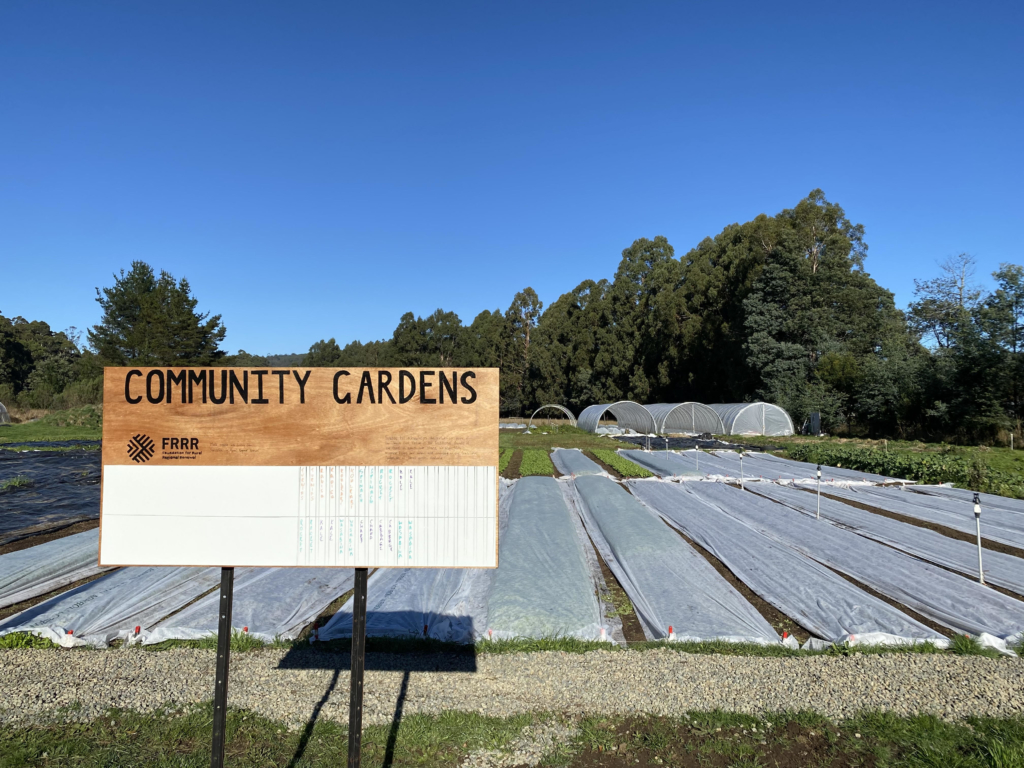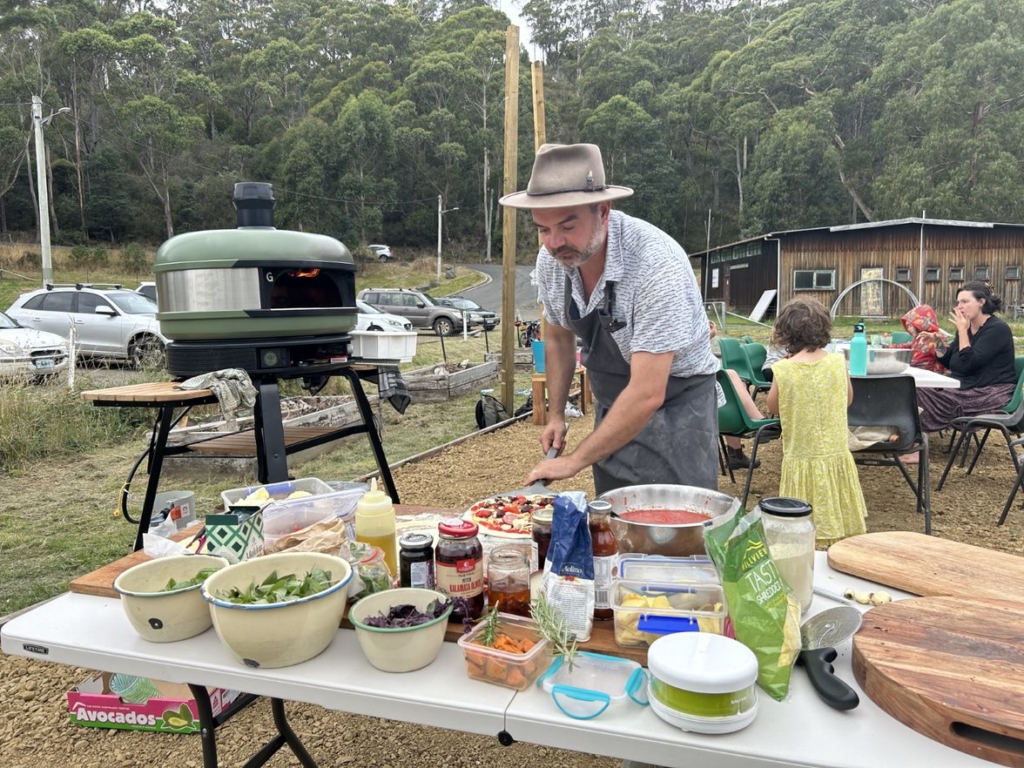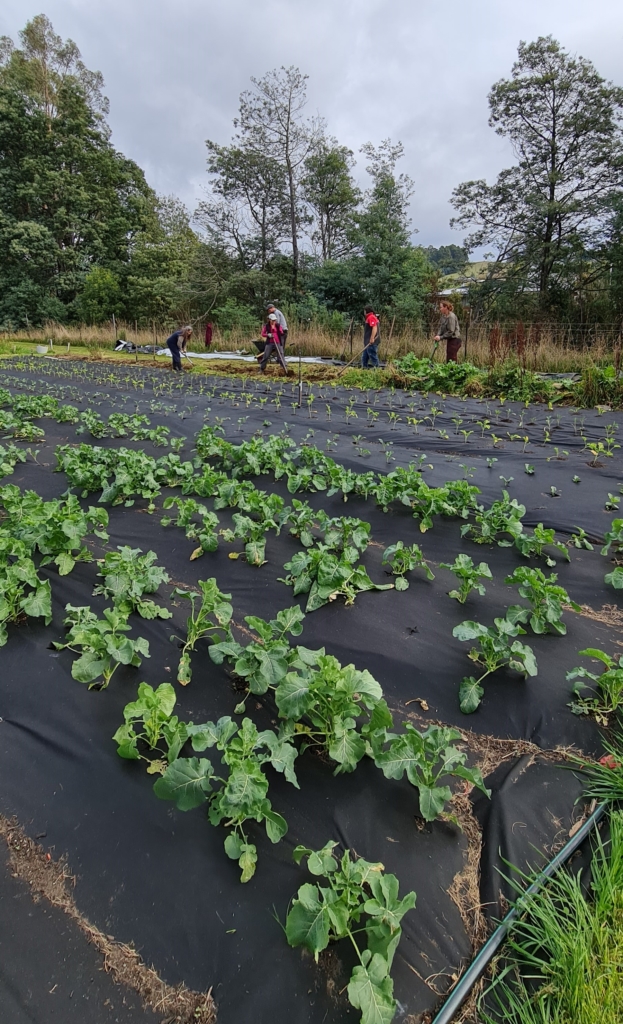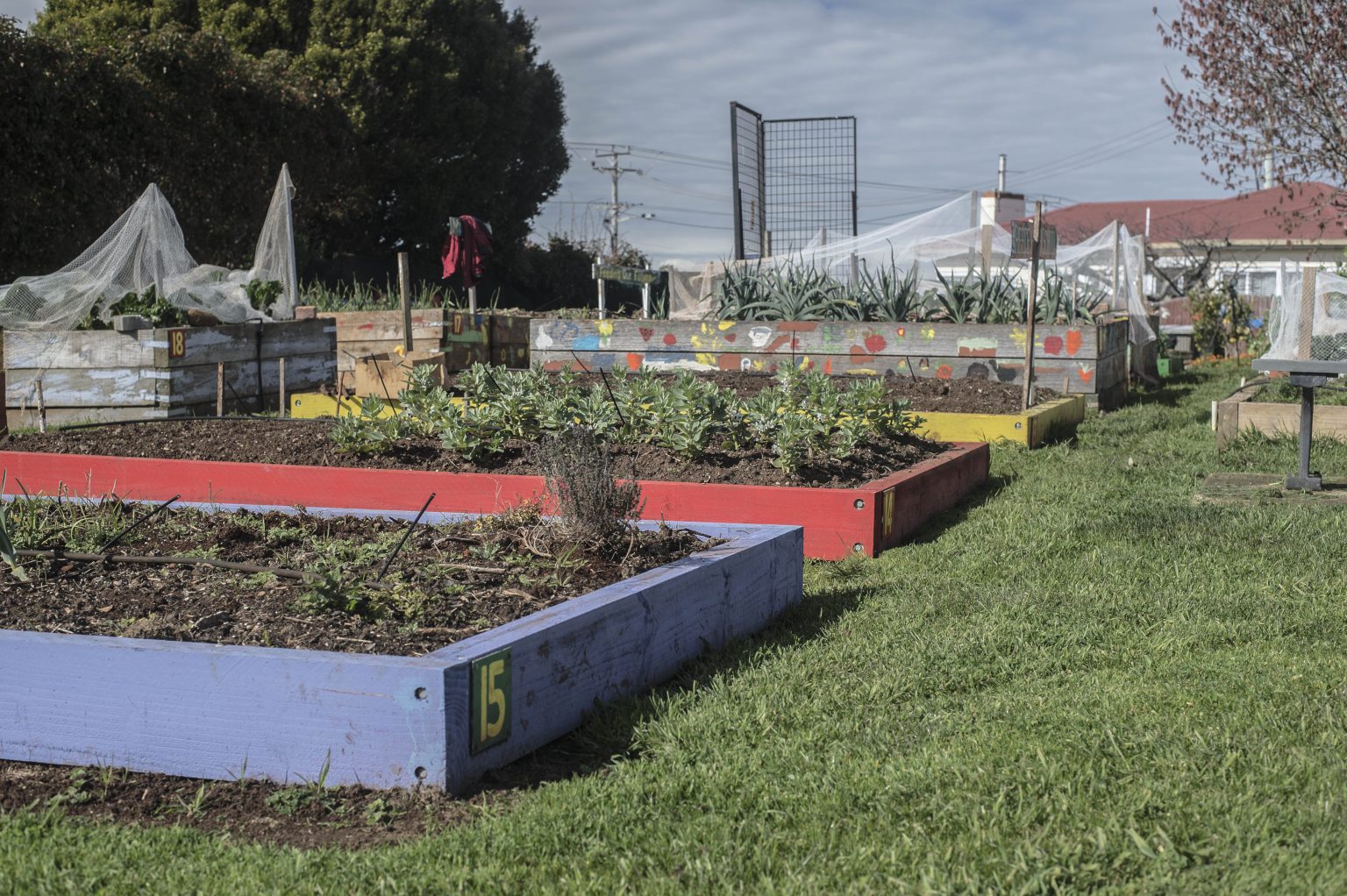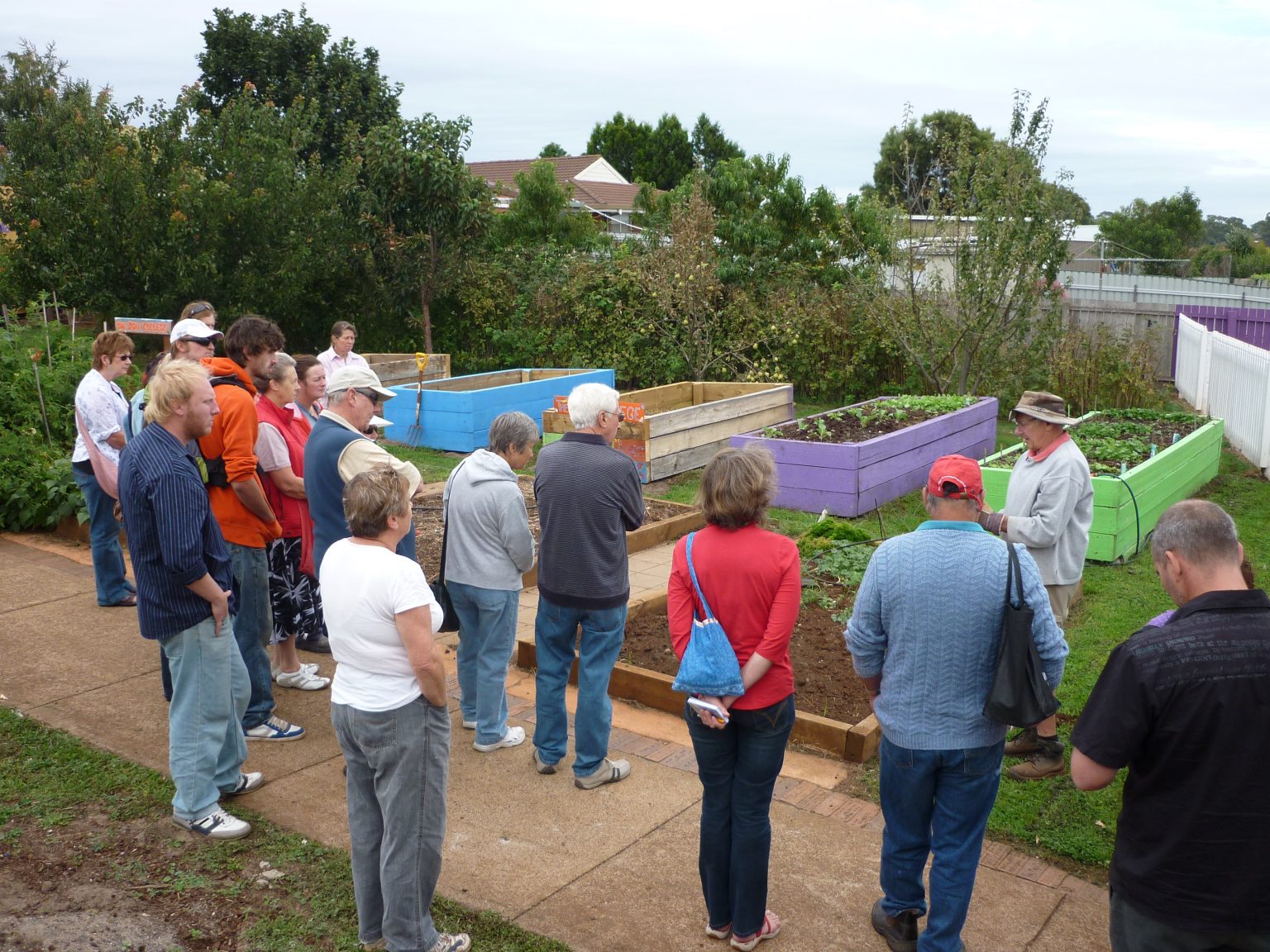Foundation for Rural & Regional Renewal (FRRR)
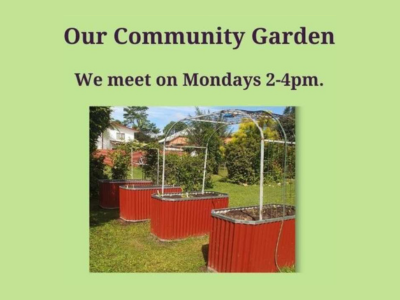
An ANZ Seeds of Renewal Grant has helped a far north Queensland community vulnerable to food insecurity establish a community garden. It’s been invaluable in educating locals on how they can grow their own food and alleviate the impacts of road closures that often follow in the wake of cyclones, affecting local food deliveries.
The project has been led by Eacham Community Help Organisation (ECHO), the Neighbourhood House for the South East Tablelands, based in Malanda in Far North Queensland. Day to day, it delivers individual and community support services, as well as in-home aged care, facilities and events, activities and workshops. The House is used by a large number of people across the community including youth, parents, First Nations groups, senior Australians, people living with disability, visiting services, and those facing hardship and crisis including homeless persons, parents and families.
One of the challenges that ECHO deals with across all these groups is food insecurity, especially following the impacts of disaster events like cyclones, which can see road transport delayed due to damaged and flooded roads, leaving local supermarkets bare of stock for days or even weeks.
So, a community garden was included in both the Malanda Masterplan and the Tablelands Regional Council Community Roadmap. As the community hub, ECHO took the lead on this project, which is yielding broad community benefits.
The focus has been growing together, learning how to propagate, harvest and prepare suitable foods at the Community Garden. By understanding which perennial plants and fruiting trees and bushes are suited to the tropics, and how to grow them, individuals and families can have an ongoing source of fresh food. Afterall, “being empowered enhances overall wellbeing.”
To support their efforts, ECHO received a $9,340 grant from the ANZ Seeds of Renewal Program in 2022. Funding went toward the garden design, plant recommendations, initial planting of fruiting trees, bushes, vines and rootstock of tropical staples and raised beds for demonstration herb garden and salad garden. It also contributed to wages for a community worker to manage the project for the first six months, with assistance from volunteers and, as the demonstration garden progressed, it helped fund short workshops delivered by an experienced community worker and volunteer.
Gardeners meet every week, including a core group of four regulars, four occasional participants and 20 visitors who share knowledge or learn. Groups, including home schoolers and school students, have come for dedicated volunteering sessions too. In fact, the garden has become the venue for special events like Mental Health Week, NAIDOC day, staff events and more.
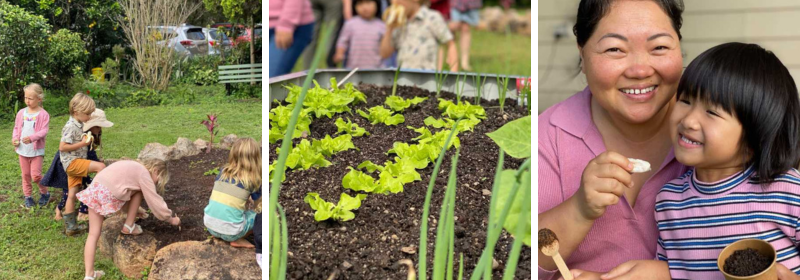
From all accounts, there have been fantastic crops of food – plenty for volunteers, visitors and emergency relief. According to Belinda Moore, Community Engagement and Development Officer, “This is a pleasant surprise and a testament to the efforts of the volunteers. Everyone is learning a lot about tropical edibles and taking cuttings away to share and grow.
“The grant helped us to launch into our Community Garden with purpose and the support of a paid worker. Without it, progress would be slow, the garden would be nowhere near as well-made and productive, and volunteers would be less supported.
“Including children in the garden is the best outcome so far – it’s exciting for the volunteers to know that ‘their’ garden is being shared to influence and inspire children. Showing people some of the tropical edibles they can easily grow from cuttings is the ongoing legacy of this garden and meets the intention of building a resilient and thriving community.”
Originally a resting place for passing drovers, Foster is a small town just north of the Gippsland coast. Like much of regional Victoria, Foster was hit hard by COVID, with long-lasting economic, health and social outcomes. Impacts on social connection, the need to provide food relief for the community, and the reduced ability for community groups to fundraise were all felt strongly by the volunteers at Manna Community Garden.
Established 22 years ago, Manna Community Garden strives to improve food security and social wellbeing in the community. Working closely with Manna Gum Community House, community lunches are held and meals are provided for people in need of support. Demand for these lunches and meals was heightened during the pandemic and continues today, with the need exacerbated by escalating cost-of-living pressures. The two organisations also work together to provide assistance and information via workshops on topics such as grafting and seed saving, and a community stall at the local farmers’ market.
The fire pit in the gardens is an important gathering place for community members. The facility hosts the local youth group, community lunches, evenings in the garden events and NAIDOC week activities.
Before the pandemic, fundraising efforts were underway to pay for desperately needed upgrades to the Manna Community Garden, including to the garden beds and the amenities around the fire pit. A large Christmas in July fundraiser had to be cancelled two days before it was due to be held due to lockdown orders and while local sponsorship allowed the garden upgrades to go ahead, the works around the fire pit remained unfunded. The seating was dangerous and needed replacing if the gardens were to continue to provide an important social space for the community.
The volunteers at Manna Community Garden applied for an FRRR grant to supplement their fundraising strategy and allow them to continue with these much-needed works. Through an Australian Government-funded SRC Rebuilding Regional Communities grant for $2,600, the fire pit seating was able to be upgraded. The community of Foster is now able to safely enjoy the gardens as a space to socialise, come together, learn and provide food relief for the town.
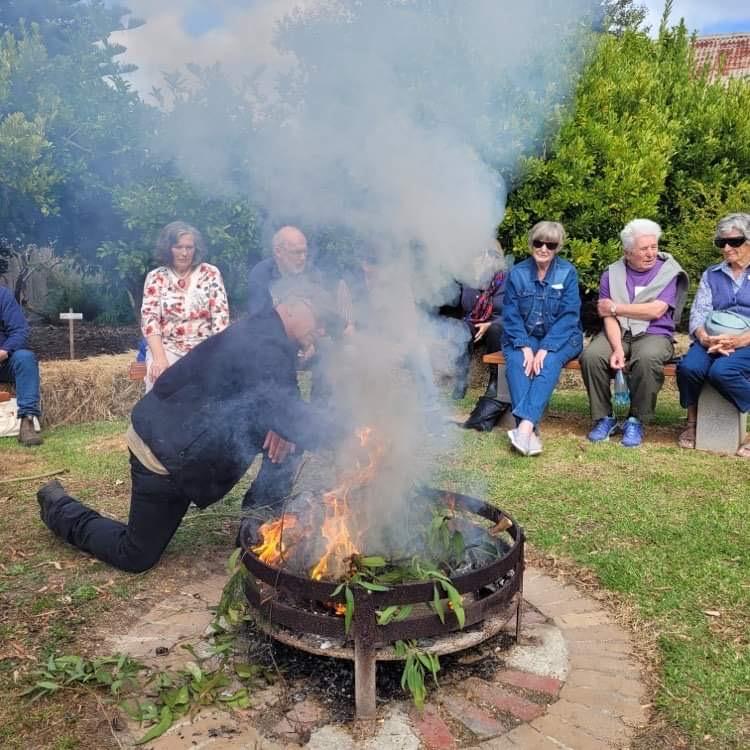

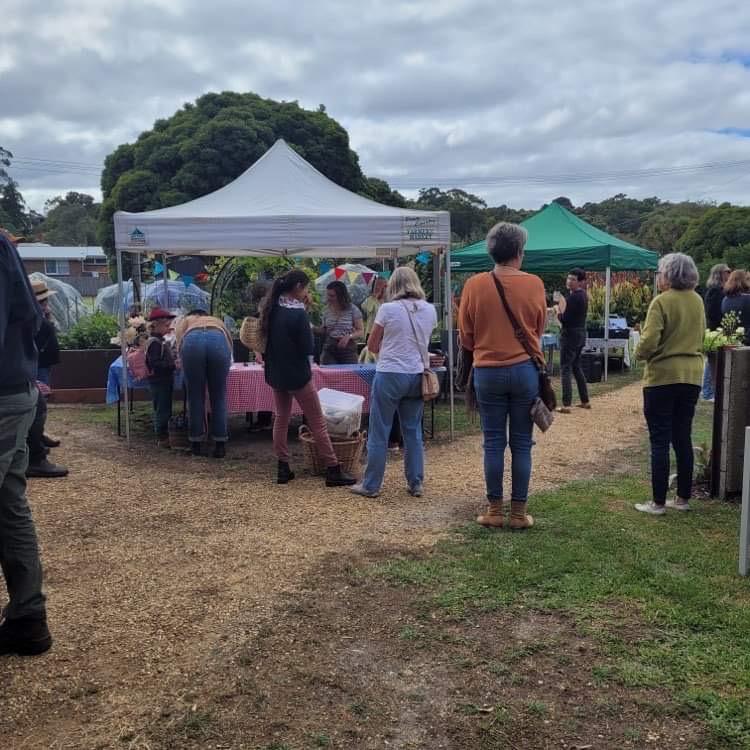
President of Manna Community Garden, Ms Juneen Schulz, explained the importance of the garden upgrades for reconnection:
“The space has provided a beautiful location for members of our community, especially our garden group, to connect. This is particularly important in the recovery from COVID-19, as it gives us a safe space to be together and rebuild our community.”
With the easing of COVID restrictions, Manna Community Garden has since joined together with other community gardens in the district to run annual events, bringing the wider South Gippsland and Bass Coast communities together and celebrating the benefits of growing locally. The first event, held in Foster in the newly renovated garden, attracted 60 guests and included workshops, guest speakers, and of course lots of beautiful locally grown produce!
“We wanted an inclusive day where community gardens across our slice of the universe could come together and discuss our favourite topics – growing food, looking after our hamlets and communities, sharing our knowledge.”
The neighbouring town of Meeniyan will host the next event, in what is hoped will be a long-running tradition – supporting communities that were badly impacted by COVID-19 to come together and encourage the health, economic, environmental, and social benefits of growing produce locally.
The work of Manna Community Garden shows that a small project can have a big, and long lasting, impact!
The Tom Price Community Garden is, by their own definition, a place to nurture community spirit, build friendships and access fresh nutritious foods that are difficult to source in the remote Pilbara region of Western Australia. They do this by hosting working bees, workshops and events, which involve locals and ‘out-of-towners’ sharing the joy of gardening and its indirect benefit on individuals’ mental and physical health.
Thanks to a Nutrien Ag Solutions $5,000 grant, awarded in 2022 this grassroots community organisation improved their ability to provide fresh food, in particular native foods, to the community and strengthened local connections by constructing a ‘Bush Tucker’ garden.
The grant was used to purchase materials for garden beds and irrigation, as well as indigenous plants. With the help of many people from different backgrounds and ages, the organisation transformed a bare, neglected piece of land into a new, relaxing tranquil garden space. Their focus on creating a ‘Bush Tucker’ space has allowed collaboration with local indigenous groups to select native food plants that thrive in the area. This collaboration not only helped volunteers connect with local First Nations people but also increased their knowledge about identifying and using indigenous foods for both nutrition and medicinal purposes.
Tania, the President of the Tom Price Community Garden Inc, wrote in their final report that it’s only when this knowledge is shared, the benefits of bush foods are passed to new generations.
“In the short term, we have used this project to educate and teach participants concepts such as regenerating soil from composting and utilising plants local to the area, however the opportunities are endless.”
Another advantage of the ‘Bush Tucker’ garden is that it has provided a space for the Rangers 4 Life group, a group of young indigenous children, to utilise the garden for learning and engaging in activities in nature. There are also plans in place for the Ashburton Aboriginal Corporation to be permanent users of the space as a skill building and social program for their members.
As the garden blossoms and start producing, the community connection is also growing as this community organisation hoped. At the Grand Opening of the site, members had a chance to reflect on the involvement of so many people along the way, including children who were wanting to know more about the different plants.
Local access to fresh produce in Geeveston was boosted through a SRC Small & Vital grant for the Geeveston Community House. A $9,419 grant was used to build micro plots and rejuvenate a community garden space at Scrubby Hill Farm, improving infrastructure and community access to allotments.
Three generations of community members came together for the launch of the project, celebrating with pizzas and a working bee weed blitz. The project is a testament to the tenacity of volunteers and their goal of improving local food security.
The group even bounced back after project delays last year following flooding that left a trail of destruction and debris at the farm, decimating earlier site preparation works. The community rallied together and through their hard work got the project back on track after the flood waters subsided and muddy land dried out. Volunteers constructed new garden beds, installed irrigation, fencing and signage, as well as a hot water system for safe hand washing and food handling.
The community is proud of the garden they have built and continue to maintain. The volunteers said they value the comradery that comes from working at the community garden, with one volunteer commenting, “I like doing community events like this, it makes me feel connected to people, to life and the land”.
In the last 12 years, the beloved community garden in Devonport, Tasmania has become a hub for local residents, where they come together for a range of activities. The garden is very popular among volunteers, seniors and the elderly, schools and people with disabilities in the community. For these groups in particular, the Community Garden is a place to socialise, grow and harvest local produce and get some fresh air.
Devonport Community House (DCH) has overseen the care and maintenance of the garden and surrounding areas since 1938. When they noticed the deteriorating condition of the wooden sleepers containing each of the more than 30 garden beds, they knew it was time for an upgrade.
With a $10,909 donation by the Thyne Reid Foundation, the DCH were able to purchase “ewood” sleepers to replace the rotten wooden sleepers. The ewood sleepers are more durable and are made of recycled plastic that will ensure at least 50 years of garden bed life, making them a sustainable investment for the Community Garden.
The process of replacing the wooden sleepers took only a few weeks and has helped to give new life to the Community Garden that has already given so much to the residents of Devonport. These improvements have not only increased the longevity of the garden but have also increased food security for the 20-50 people a week who access the garden through FoodShed, a food distribution organisation that helps farmers make profit.
In the 12 years that the garden has been operational, DCH has been able to see the joy it has given many of the residents. With the long life expectancy of the ewood sleepers, the success and activity around the garden looks set to continue long into the future.
The Camperdown Community Garden was originally established in 2009. Through research and analysis conducted in 2017, it was identified that the Camperdown Community Garden had not been functioning in a way that allows this community asset to fulfill the space’s academically established benefits like “enhancing the physical, emotional and spiritual well-being necessary to build healthy and socially sustainable communities.” Considerable work in rebuilding the management and physical structure of the garden was required to address this.
Much of the local rural area, in Victoria’s south-west, supports the dairy industry which has been impacted by the drought. As a result, the Camperdown & District Community House was seeing an increase in demand for emergency food relief and social support services. Camperdown is a strong community however, the impact of mental health issues, social isolation and drug and alcohol abuse has significant impact on social cohesion and health and wellbeing.
As part of a revamp, the Gardiner Dairy Foundation’s Working in Dairy Communities Small Grant allowed the Camperdown & District Community House to vastly improve the community garden space.
Four new above ground garden beds were designed, built and installed, with additional soil and compost to replenish depleted existing beds. A new accessible gravel path at rear of garden and around the new accessible garden beds was also added.
New garden guidelines and signage was also implemented, allowing individual gardeners to communicate and connect with the broader community. Using the boards, for example, to communicate what they are currently planting, or why they are planting what they are planting, when the produce will be ready to harvest, or other useful and educational information.
New tools were also purchased that will be usable by people of diverse abilities.
“A friendly and inclusive community / stronger social fabric” has been identified as the primary outcome achieved from this project, with the following being the main reasons why this was identified as the primary outcome, and what we believe the most successful elements of the project to be.
This project was a tremendous success and a delight for everyone who participated in the process.

